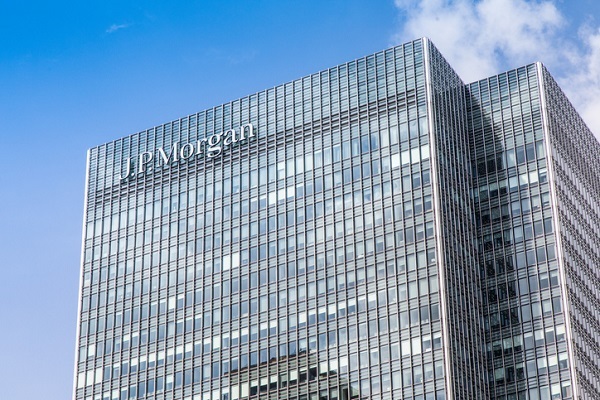ii view: new high for JP Morgan after beating forecasts
A diversified business portfolio and a robust balance sheet. We assess prospects for this Dow Jones banking giant.
15th January 2025 15:38
by Keith Bowman from interactive investor

Fourth-quarter results to the 31 December
- Revenue up 10% to $43.7 billion
- Earnings per share up 58% to $4.81
- Quarterly dividend of $1.25 per share, unchanged from Q3
Chief executive Jamie Dimon said:
“The US economy has been resilient. Unemployment remains relatively low, and consumer spending stayed healthy, including during the holiday season. Businesses are more optimistic about the economy, and they are encouraged by expectations for a more pro-growth agenda and improved collaboration between government and business.
"However, two significant risks remain. Ongoing and future spending requirements will likely be inflationary, and therefore, inflation may persist for some time. Additionally, geopolitical conditions remain the most dangerous and complicated since World War II. As always, we hope for the best but prepare the Firm for a wide range of scenarios.”
- Invest with ii: Buy US Stocks from UK | Most-traded US Stocks | Cashback Offers
ii round-up:
US banking giant JPMorgan Chase & Co (NYSE:JPM) today detailed quarterly revenue and earnings that beat Wall Street estimates, with increased investment banking and higher investment management fees more than offsetting lower net interest income.
Fourth-quarter earnings soared 58% from a year ago to $4.81, helped by 20% and 25% gains in markets related and investment management profits. That beat analyst earnings hopes of $4.11 per share, with the 10% improvement in revenues to $43.7 billion exceeding forecasts of $41.7 billion.
Shares in the Dow Jones company rose 1% in US trading having come into this latest news up 46% over the last year and hit a new high on these results. That’s similar to rival Wells Fargo & Co (NYSE:WFC) and comfortably ahead of a near 14% gain for the Dow Jones index itself.
Headquartered in New York, JP Morgan employs around 300,000 people globally. Revenues at its commercial and investment banking division climbed 18% from a year ago to $17.6 billion. Investment banking fees, and potentially helped by the election of a pro-growth Donald Trump, jumped 49% to $2.48 billion. Revenue from fixed income and equity related businesses each climbed around 20%.
A second consecutive year of 20%-plus gains for the S&P 500 index helped fuel an 18% expansion in client assets under management to $5.9 trillion, driving fund management profit up 25% year-over-year to $1.5 billion.
Elsewhere, net interest income, excluding markets related businesses, and pressured by lower interest rates, fell 2% to $23 billion. That helped drop profit at the consumer and community banking division by 6% year-over-year to $4.5 billion.
A previously declared quarterly dividend of $1.25 per share was unchanged from the prior third quarter. First-quarter results are scheduled for 11 April.
ii view:
Tracing its history back to 1799, JP Morgan today competes against rivals including Bank of America Corp (NYSE:BAC) and Citigroup Inc (NYSE:C). North America generates its biggest slug of revenues at around 78%, followed by the combined Europe, Midde East and Africa region at 13%, and Asia Pacific most of the balance at 7%.
For investors, accompanying management comments flagging geopolitical tensions are not to be ignored. Competition across the sector continues to be intense. Higher wages remain a factor pushing up group costs. A forecast price-to-net asset value of around 2.2 times sits comfortably above many rivals, suggesting the shares are not obviously cheap, while plans for an eventual replacement of CEO Jamie Dimon have yet to be made.
- This secret indicator is warning about a lost decade for the S&P 500
- Key reasons S&P 500 will surge another 10% in 2025
- Three UK banks to buy with at least 20% upside
More favourably, the benefits of a diversified business model have regularly seen strong conditions for one countering challenges at another. Regulations under new President Donald Trump are expected to ease. The bank's finances remain robust given a CET1 ratio (a measure of financial strength) of over 15%, while a forecast dividend yield of around 1.9% is not to be ignored.
In all, and while reasons for caution persist, JP Morgan’s size leaves it as something of a play on the world’s largest economy, with its place in many investor portfolios remaining justified.
Positives:
- Business diversity
- Robust balance sheet
Negatives:
- Economic outlook uncertainty
- Heightened costs
The average rating of stock market analysts:
Buy
These articles are provided for information purposes only. Occasionally, an opinion about whether to buy or sell a specific investment may be provided by third parties. The content is not intended to be a personal recommendation to buy or sell any financial instrument or product, or to adopt any investment strategy as it is not provided based on an assessment of your investing knowledge and experience, your financial situation or your investment objectives. The value of your investments, and the income derived from them, may go down as well as up. You may not get back all the money that you invest. The investments referred to in this article may not be suitable for all investors, and if in doubt, an investor should seek advice from a qualified investment adviser.
Full performance can be found on the company or index summary page on the interactive investor website. Simply click on the company's or index name highlighted in the article.